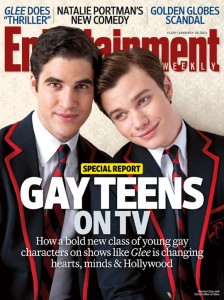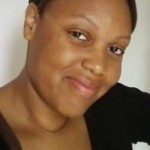Toni Taylor: Despite More Roles, Stereotypes of GLBT People Remain
Entertainment Weekly recently ran a front-page story on the increased depictions of gay teenagers on television.
But has the portrayal of gay, lesbian, bisexual and transgendered people really improved in television and film?
Social workers are committed to social justice for all, including GLBT people. So in honor of LGBT Pride Month in June, SocialWorkersSpeak.org is asking social workers what they think about this issue.
Here are responses from Toni Taylor, MSW, an adjunct professor at Hudson County Community College in Jersey City, NJ. Taylor teaches psychology and writing courses. She has worked in direct practice and administration with the elderly, homeless, domestic violence victims, children and families, substance abusers and the mentally ill. She is also a contributing writer at ThyBlackWoman.com.
Q: Toni, are you pleased with how the GLBT community is portrayed in TV and in movies?
A: I’m actually displeased with a majority of programs that have at least one GLBT character because the individual is usually pigeonholed in a token stereotype.
Q: What are your favorite shows and movies that depict GLBT individuals?
A: I know I’m going way back a bit, but I thoroughly enjoyed Queer As Folk and Oz when they were on the air. When Queer As Folk first came out, I remember it being so taboo and a “guilty pleasure,” but it definitely opened doors for newer programs. I enjoyed the reality in which Oz displayed prison life. Another good program was Noah’s Arc. Kissing Jessica Stein and If These Walls Could Talk 2 were great movies. Although Brokeback Mountain was the butt of many jokes, I enjoyed the love story that unfolded between the characters. I absolutely loved Will & Grace for its over-the-top antics that stole the spotlight. I watched Glee in the very beginning of the series, and I hated how Kurt was a marginalized player or only used for laughs (For example, the episode when he could only kick a field goal to the tune of Beyonce’s “Single Ladies”). I understand now that in recent episodes, he’s received his own storyline, and I applaud the program for taking that step forward.
Q: Which are programs that irk or upset you?
A: I have a love/hate relationship with RuPaul’s Drag Race, which is on LOGO. I love that drag queens have an opportunity and an outlet on national television to strut their stuff, but I believe the show is just as exploitative of its contestants as is America’s Next Top Model. Family Guy and American Dad, which are essentially two shows that are equal opportunity offenders, bother me with the flip-flopping of many of the characters’ sexuality.I don’t like shows and movies that typecast GLBT characters as one-dimensional (the overly feminine man who throws himself onto other men, the homo-thug man or woman always looking for “fresh meat” to convert). I also have issues with the ease in which male characters can dress up as women in order to score laughs and earn millions of dollars, but don’t address issues that affect the individuals in this population. There definitely is a stigma around men and women who identify themselves as the other and dress the part, and inclusion should be addressed rather than ignored.
Q: If you could create an ideal program about a GLBT person what would the plot be?
A: If I could create an ideal program, I would create a reality based docudrama that is inclusive of the It Gets Better Project and NoH8 Campaign which highlight families and individuals who have been affected by the ignorance and discrimination of others. I would want the show to demonstrate that we are all humans first and foremost, and before we are all pigeonholed into categories that make us “lesser or greater” than one another, our common denominator is humanity.
Q: Why is this issue important to you?
To learn more about the National Association of Social Workers’ position on GLBT issues visit the association’s Diversity & Equity Web pages by clicking here.
A: This issue is important to me on many fronts. I have numerous friends and family who are members of the GLBT community and I vehemently defend them from the casual bigotry of which they are consistent recipients. I myself am pigeonholed into two marginalized categories: a woman and a black person. I have experienced my fair share of covert slights and overt displays of discrimination based on my gender and ethnicity, and I would absolutely hate to inflict that pain on anyone based on how they are characterized by oppressive forces.
| Leave A CommentAdvertisement
1 Comment
Leave a Comment
You must be logged in to post a comment.





I thank you for this article and appreciate Toni Taylor’s perspective. Allies are amazingly important in our struggle to become true equals in this world. I don’t know where GLBT people would be without allies.
As a lesbian, woman and social worker, I’ve spent a lifetime ‘recovering’ from the hetero-sexism and homophobia I’ve experienced. It always amazes me how others think they get to decide for me who I want to love, and marry. It amazes me there are some who think they understand who I am. As Bon Jovi once sang…’It’s my life…”
What many don’t understand is that it takes extraordinary courage to live an authentic GLBT life. What is sad are the many who don’t ever ‘get there’.
Luckily, TV and life, ‘does get better’. And, we must keep working for that improvement as well. Our ‘enemies’ don’t let up.